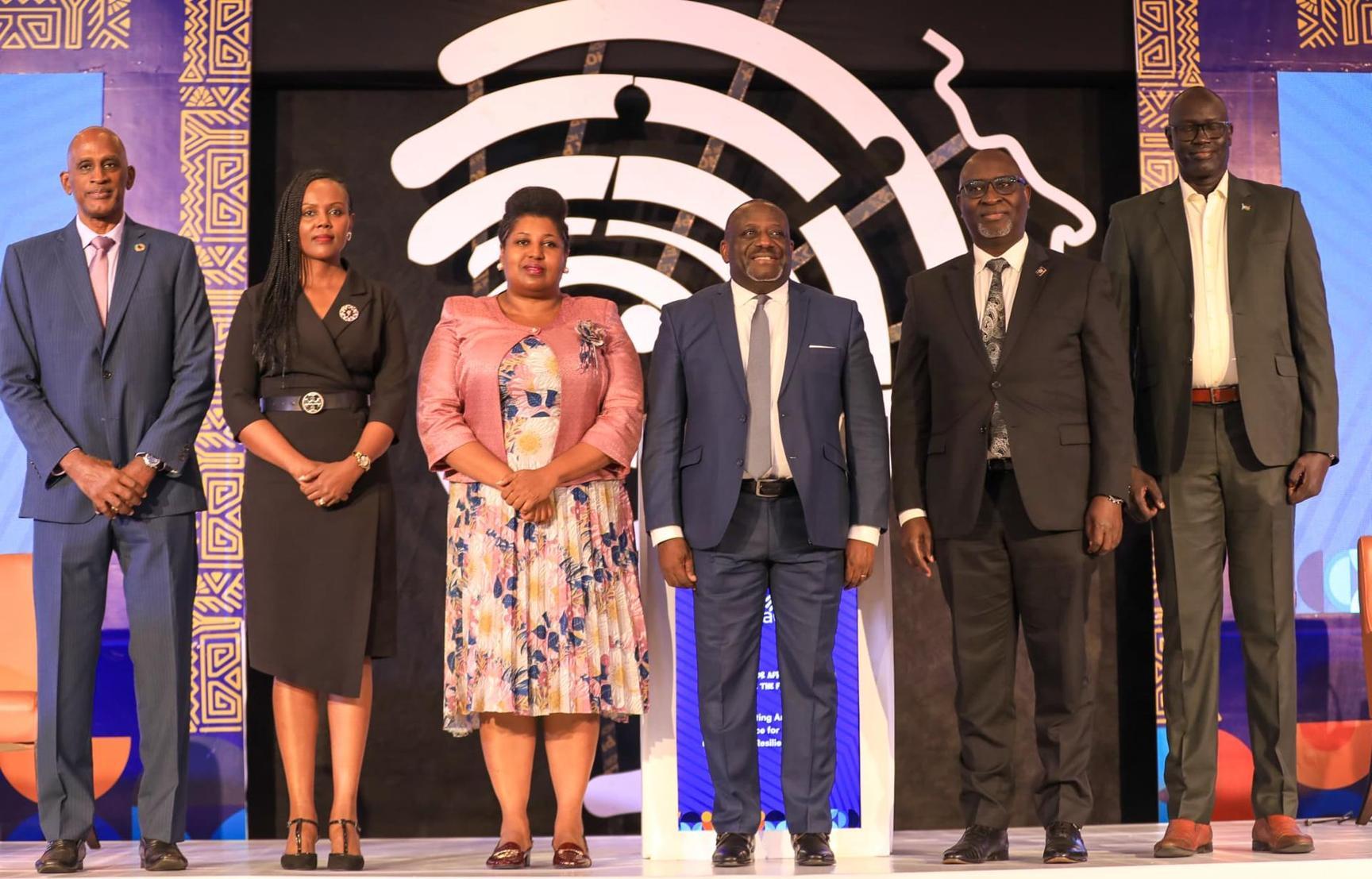Africa-Press – Uganda. The Managing Director and Engineering Director at Microsoft Africa Development Centre (ADC), Catherine Muraga has underscored the role that Artificial Intelligence(AI) can play in spurring Africa’s economic growth.
Giving a keynote address at the Africa Artificial Intelligence (AI) Summit at Speke Resort, Munyonyo on Thursday , Muraga said recent estimates, according to a report done by the African Union titled “Africa at the Forefront of the AI Revolution,” suggest that Africa could contribute up to 1.5 trillion dollars, which is about 6% of Africa’s GDP—quite significant.
“With Africa’s young tech-savvy population soon to be a fifth of the world’s consumers, the continent is uniquely positioned to ride this AI wave. This shows AI holds unprecedented promise for Africa’s economic growth and societal resilience,” Muraga said.
She explained that across Africa, businesses and governments are beginning to apply AI to solve long-standing challenges and boost productivity.
Muraga said AI’s promise for Africa coincides with the demographic strengths including Africa’s population being the youngest globally, bringing with it digital natives— people were born and found technology reading.
“By 2030, the continent will house a large share of the world’s workforce and consumers. This means a vast user base ready to benefit from AI-driven services and a talent pool that, if—and I underline if—properly skilled, can develop and maintain these AI systems,” she said.
According to the Microsoft Africa Development Centre boss, AI can be used to bolster resilience against shocks.
To this, she explained that AI can help predict and manage disasters like floods and enable droughts, optimize healthcare during pandemics, and enable businesses to adapt quickly to market changes.
“As an example, the organization I lead—we have a Microsoft Research Lab Africa. AI models are being used in Rwanda to forecast floods in real-time, allowing communities to prepare and mitigate damage. In agriculture, AI-driven climate models are helping farmers in Kenya adjust cropping schedules ahead of drought or floods, cushioning the blow of climate change.This example illustrates why embracing AI is not optional if Africa is to build a robust and inclusive future.”
“AI can also connect farmers to markets with predictive pricing. In healthcare, remote diagnostics and tools—our colleagues again in Microsoft Research Lab, this time in Cambridge—are doing this in remote areas in Ghana. Another opportunity is leveraging existing platforms and data. Because as we all know, we need good quality data to really power the AI models.”
She however noted that AI integration is a journey that needs to be taken step by step.
“ From what you have seen come successful companies, including Microsoft, we have not taken a big bang approach. It’s gradual—planning, starting small, experimenting, learning from what didn’t work, pivoting, and scaling what works.”
She called for moving away from consumerism, but rather local innovators localizing AI solutions. “That can mean training AI in local languages like Kiswahili, Amharic, Luganda and many others—considering the vast linguistic diversity across the continent. There is need to be mindful of local accents, voice data, and region-specific images to improve AI responsiveness and effectiveness.”
She called for the need to focus on augmentation, not replacement.
“There’s been a lot of fear—”Will AI take away jobs?”—but what we’ve seen, and what’s an easier sell, is to focus on augmentation. That is, introducing AI into organizations as a tool to enhance human capabilities, not replace them. Employees and stakeholders are more likely to embrace AI if it’s seen as a co-pilot, something you work with to improve productivity.”
Speaking during the summit, the Uganda Communications Executive Director, Nyombi Thembo said AI conversations ought to reach communities, away from laboratories and boardrooms.
“This is important because real change happens when these conversations reach communities. If we keep these conversations in elite spaces, we risk missing the true impact AI can have on real people’s lives,” Thembo said.
He said despite enormous challenges ahead for Africa including infrastructure and education gaps which are deep rooted, not all is lost.
“Big problems are not solved all at once—they are solved piecemeal, intentionally. A lion, after all, is considered greater than a python—not because it swallows whole—but because it takes one bite at a time. Let’s not be paralyzed by the size of the problem. Let’s be focused and intentional,”
he said.
“AI, used well, can cut down repetitive tasks, enhance decision-making, and free up time for innovation. It’s like having a smart assistant—one that lets you focus on what truly matters.”
For More News And Analysis About Uganda Follow Africa-Press






